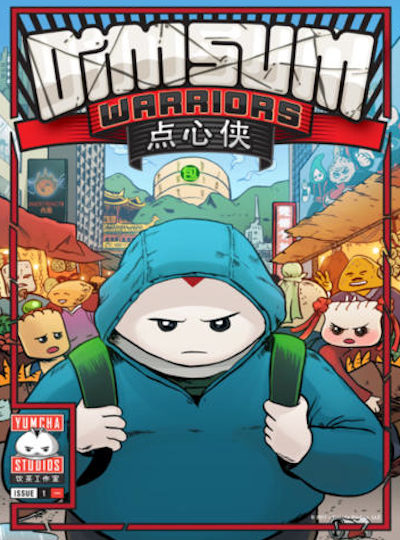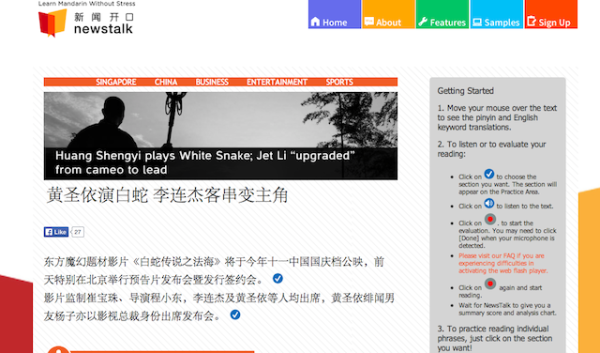
CHILDREN, TEENS AND ADULTS USE DIGITAL METHODS FOR MANDARIN LEARNING
During the recent ‘New Digital Revolution in Learning Mandarin’ public seminar (mentioned HERE ), two experts in the area of using digital methods for Mandarin learning were here in Singapore. We took the opportunity to ask them both some questions and learn of some excellent methods that can help, not only our children but teens and adults too, in using digital methods for Mandarin learning.
Dr David Moser tells us how, since the addition of technology and digital methods for Mandarin learning, there has been both significant breakthroughs in how students learn as well as marked improvements in student achievements;
“The most important breakthrough is that children can now begin to read full texts very early on, without spending the first few years doing many daily ‘tingxie’ character dictation exercises. Students are now freed to spend more time reading and recognizing characters, rather than writing them. Within a short time, grade school children can begin to explore Chinese texts that are at their actual level of cognitive development, rather than being restricted to the usual rudimentary grade-school fare involving animal stories or simple stories.Children can become more actively involved in interesting and meaningful Chinese texts, which will boost their interest in both reading and writing.”
“There are more dramatic improvements among the high school and college students of Chinese, this is due to the fact that they have discovered that these digital methods for Mandarin learning enable them to freely explore a wide range of challenging texts that would have been impossible to tackle a decade ago. Students who have been studying Chinese for two or three semesters are no longer dependent on outdated textbooks but can now simply follow their interests and read virtually any current magazines, newspapers or websites.”
Both Dr David Moser and Mr Tan Dan Feng tell us that there are some wonderful online resources which children can use for Mandarin learning and practice;

Mr Tan Dan Feng : “Many mainstream technology offering are effective aids for Mandarin learners, Youtube is a trove of learning materials where parents can guide children to listen to video clips of nursery rhymes, children’s songs, skits and cartoons which are sometimes translated using subtitles. For Singapore children, there are a number of locally-developed learning tools, such as Dim Sum Warriors, this iPad app is a very engaging tool to help young children pick up spoken and written Chinese. Its main characters are a char siew bao, siew mai and har kow, who are well-versed in kungfu, the Chinese content is translated by an NIE professor. Reading news articles is a good way in which learners can practice language, NewsTalk is a software I helped develop which uses Chinese news articles from Singapore as learning materials. Learners can choose to read content they are interested in, such as entertainment, sports or local news.”

Dr David Moser : “Two online resources I’ve found to be helpful are ‘Chinese Reading Practice’ and ‘Yes! Chinese’. Of course there are many more and new ones everyday, parents should spend a little time exploring the internet to find applications that are age appropriate and have content of interest to their child.”
So, with applications and digital technology in mind, how can parents create the best digital environment to help their children learn Mandarin?
Dr David Moser : “Parents should begin by creating a Chinese-friendly environment by installing apps on the child’s desktop computer, pad or smartphone. The most basic essential type of application is the Chinese-English English-Chinese digital dictionary, which enables children to more easily read any website or materials in Chinese. With good and easy to use apps in place, children will be able to access the pronunciation and meanings for all unfamiliar characters on webpages and documents. Two good extensions for web browsers are Perapera and Zhongwen Chinese Popup Dictionary, these can be quickly installed on web browsers such as Firefox or Chrome. Also, the MDBG dictionary is a good independent module that provides character translation for browsers and ordinary text document like Word and PDF. Forr pads and smartphones, there are incredibly useful dictionary tools like Pleco and KCdict which enables users to access pronunciation and translations directly on web pages.”
Do you or your children have some favourite online resources or apps for learning Mandarin, or Mandarin practice, that you would like to recommend to BubbaMama readers? Comment below or email us at clare@bubbamama.com we would love to hear what you or your children use.
Meet the experts in digital methods for Mandarin learning :-
Mr David Moser holds a MA and PhD in Chinese Studies from the University of Michigan, with a major in Chinese linguistics and philosophy. He has been a visiting scholar at the Beijing University and a visiting professor for five years at the Beijing Foreign Studies University. Since 1992, he has appeared frequently on Chinese television as a foreign expert, host and an occasional performer of a kind of Chinese stand-up comedy form called xiangsheng or.
Mr Tan Dan Feng is a translator, technologist and publisher. He is a member of the National Translation Committee, Television and Radio Advisory Committee and Panel of Experts and the Cultrual Medallion Award Specialist Panel, and chairs the annual Singapore International Translation Symposium. Language software development projects he has headed include the Gist Mobile Translation System and NewsTalk Language Learning Platform.



 Digital Revolution in Learning Mandarin
Digital Revolution in Learning Mandarin Teaching your child Mandarin
Teaching your child Mandarin
Comments 1